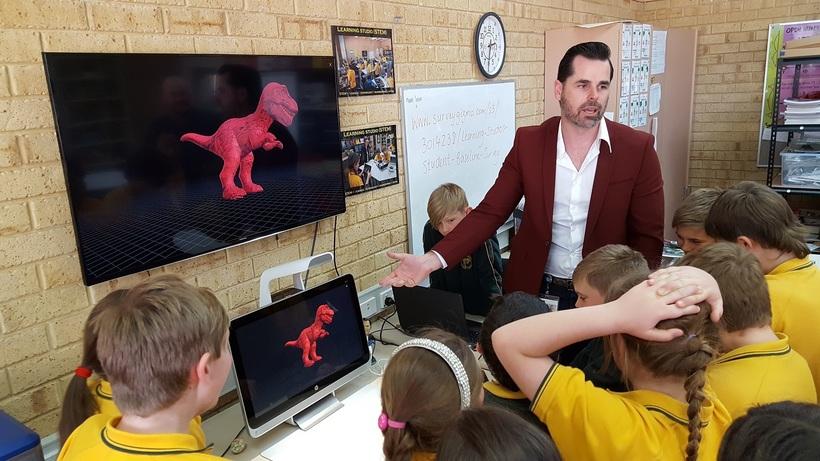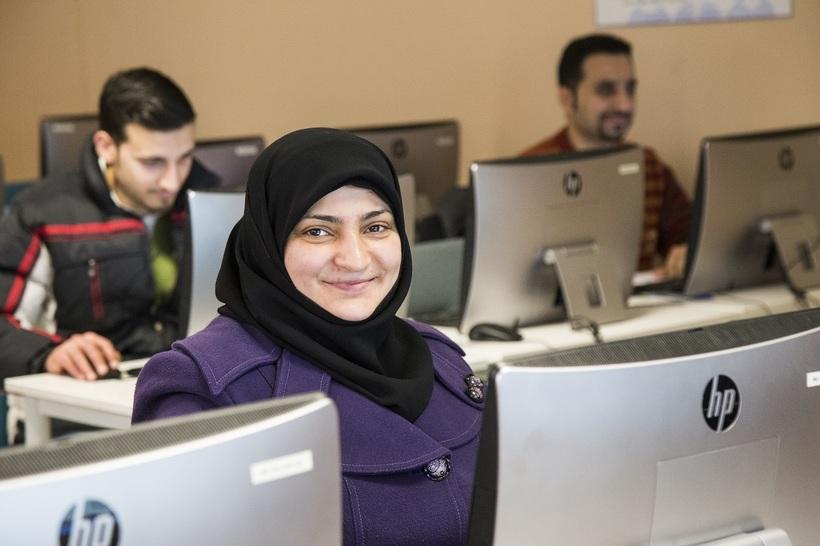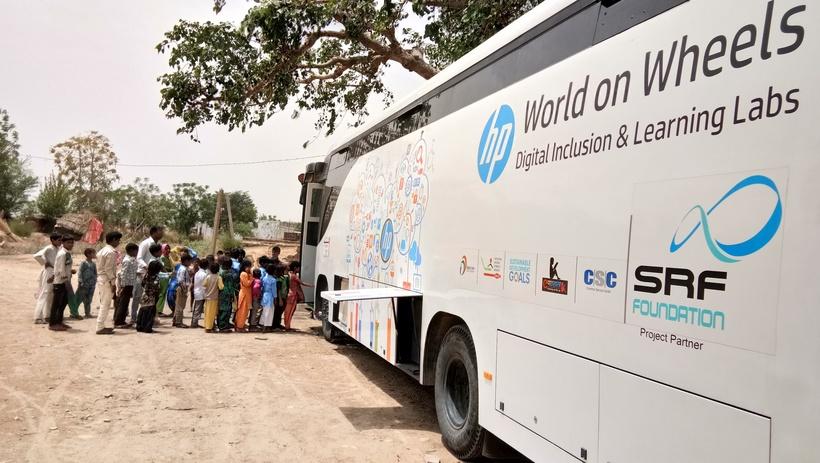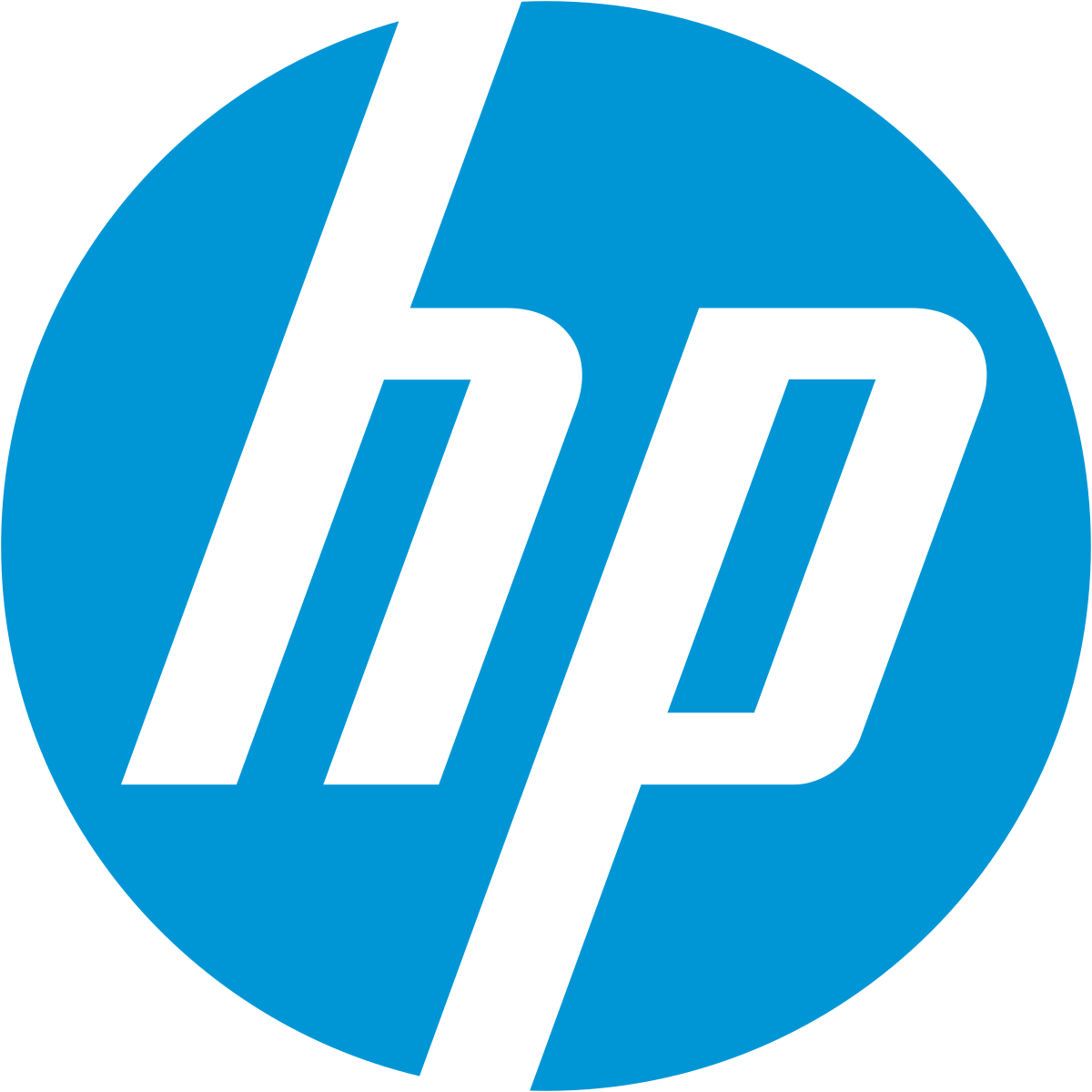The Power of Education: Breaking the Cycle of Poverty
by Nate Hurst, Chief Sustainability and Social Impact Officer
Originally published on HuffPost
Today’s hyper-connected, tech-driven world opens doors to abundant opportunity for those who are equipped to seize it. Yet 330 million children across the globe are not learning basic literacy and numeracy skills. As the educated capitalize on economic success, children without education and skills are left behind to perpetuate the cycle of poverty.
Bridging the gap between education and poverty is essential to creating the next generation of thinkers and innovators. Ensuring people have access to technology—in addition to the tools necessary to optimize its potential—is crucial to building an inclusive economy that allows everyone to thrive. That’s why HP is committing $20 million to enable better learning outcomes for more than 100 million people by 2025. Chief Supply Chain Officer Stuart Pann announced this commitment on stage at the 2017 Global Citizen Festival in Hamburg on July 6.
Building the Classroom of the Future
The increasingly connected, mobile and personalized nature of technology has shifted the workplace forever. Employees now expect to be able to work wherever, whenever, leveraging technology to collaborate with colleagues, customers and partners all over the globe. Jobs of the future will rely heavily on digital tools, so it is imperative that classrooms prepare their students for eventual employment in the workplaces of tomorrow.
In our quest to reinvent the classroom, HP creates technology solutions that deliver meaningful outcomes for students, schools and communities. Student success happens when education is personalized and flexible, resulting in optimal engagement and measurable results. Our HP Education Edition PCs are built for schools and designed for learning. Built tough to survive active, mobile learning and designed to help teachers differentiate instruction and save time, the PCs were created with direct feedback gathered from thousands of teachers, students and school administrators to ensure maximum impact.
Some examples of revolutionary classroom technology include the Sprout Pro by HP, which can help instill a “maker mindset” within students through project-based learning, enabling them to create 3D models while exploring the basics of digital communication. Our HP ProBook x360 laptops provide students with a portable, blended-learning experience—allowing students to touch, write and draw across a range of learning activities.
Bringing the Classroom to You
While these technology innovations open worlds of opportunity for students with access, the millions of children in underserved rural, urban and refugee communities cannot benefit unless we bring the opportunities to where they live.
In 2016, we implemented a program called HP World on Wheels, committing to build and deploy 48 mobile, self-contained, Internet-enabled digital inclusion and learning labs to help bridge the education gap in rural India. The program supports the Indian government’s Digital India initiative and aims to reach 6,400 Indian villages and more than 15 million people over the next six years.
The HP World on Wheels program supports digital literacy, provides education programming and entrepreneurship training, and connects students, entrepreneurs, and community members to government programs. Each 20-seat mobile learning lab is equipped with HP computers and printers, software suites and e-learning tools, and powered by high-efficiency solar panels and battery packs that store enough energy to sustain the lab, even on cloudy or rainy days.
As part of our joint Reinvent the Classroom initiative with Microsoft, we are working to inspire instructional innovation and next-generation learning experiences. HP Learning Studios leverage HP technology to engage students in next-generation learning experiences, exposing them to skills and concepts like design thinking, three-dimensional design, and social entrepreneurship. Learning Studios are currently in place in 60 schools across developed nations like the United States, Canada, Europe, Australia, and New Zealand, and we recently committed to implementing six studios in the Middle East to serve the refugee communities. These studios give refugee children access to the latest education technology, while adults are given access to the necessary tools to learn essential business and IT skills.
Maximizing Educational Impact
HP’s education goal expands beyond our Learning Studios and mobile learning labs—and also beyond traditional students under the age of 18. We educate adult learners through HP LIFE, (Learning Initiative for Entrepreneurs) a free, global e-learning program of the HP Foundation. The courses available through HP LIFE aim to empower people of all ages in diverse communities around the globe by giving them the tools needed to start and maintain a business.
Through HP National Education Technology Assessment (NETA), we provide school systems of all sizes with a step-by-step process to craft education technology programs that generate meaningful outcomes for their students and their communities. HP supports governments and policymakers around the world in creating effective human capital development policies and programs, including employer engagement programs, through a combination of macroeconomic analysis, hyper-local insights and predictive analytics. In the last decade alone, we have distributed 25 million tablets, notebooks, and PCs to schools, helping students develop literacy, numeracy and global competencies with personalized solutions.
Solving the problem of global poverty is no easy feat, but ensuring children and adults have access to a quality education is a vital building block for sustainable development. By empowering everyone, everywhere with the skills and opportunities to succeed in the jobs of the future, we can help to break the cycle.
HP’s pledge supports the United Nations Sustainable Development Goal 4 and aligns with the company’s goal to improve access to quality education and lifelong learning for all in the classroom and beyond, as outlined in the recently released HP 2016 Sustainability Report.




